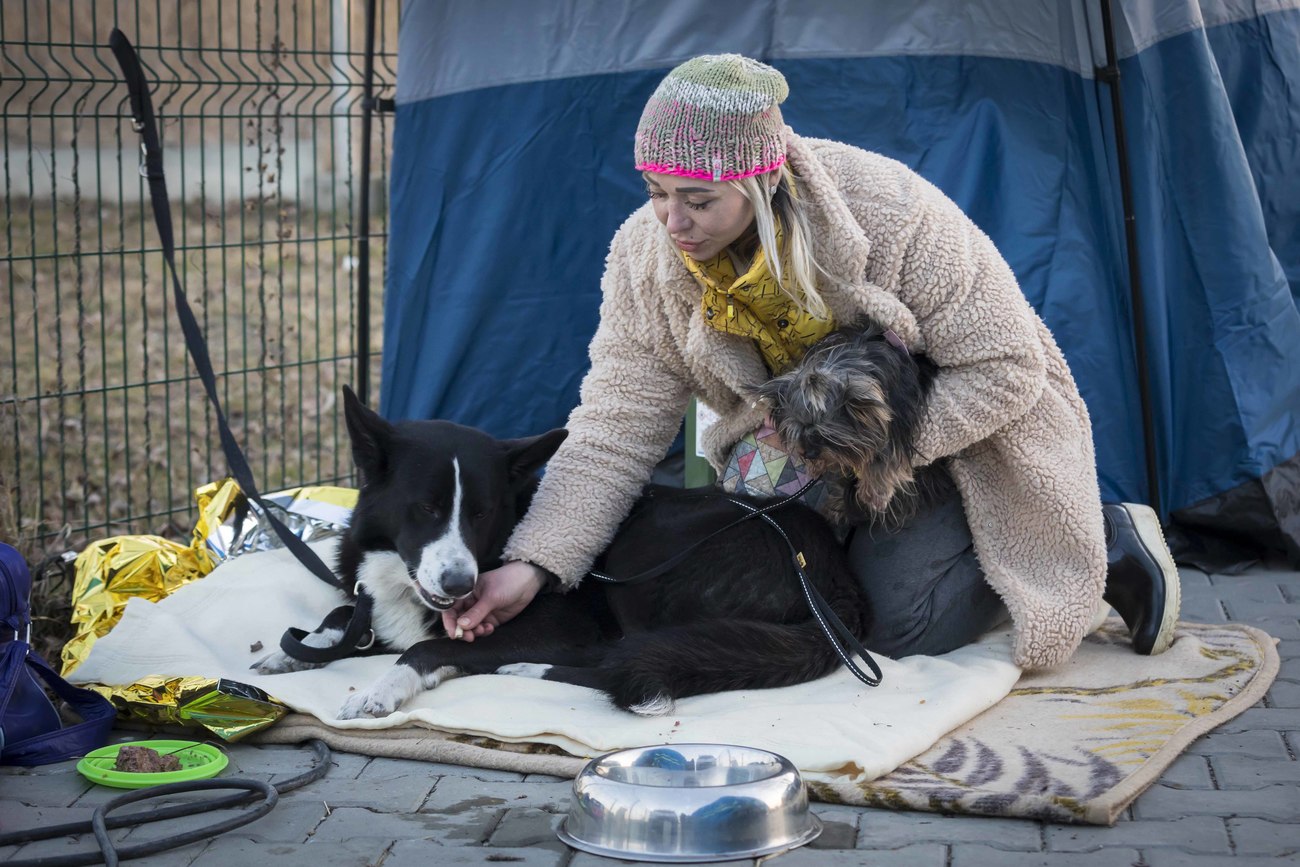animals, people and war: the impact of conflict
animals, people and war: the impact of conflict

New IFAW report highlights impact of human conflict upon animals and urges critical policy change
(WASHINGTON, DC, May 09, 2022) — A new report released today examines the profound impact upon all animals of modern-day conflict like wars and civil unrest. IFAW’s (International Fund for Animal Welfare) “Animals, People and War: The Impact of Conflict” report covers the spectrum of companion pets, livestock, zoo animals and wildlife.
The impact of conflict regularly spills over into the natural environment with negative effects on individual animals, entire species and communities, with repercussions that have the potential to reverberate for generations. The report offers a series of recommendations to address the impacts of geopolitical conflicts on animals to better serve them in unexpected times of crisis, and ultimately improve the well-being of human communities as well.
According to Azzedine Downes, CEO of IFAW, “Both animal and human conditions, as well as their fates, are deeply intertwined. Human conflict is tragic and never confined to human society alone. Animals in conflict zones experience the same distress as their human counterparts. While the reduction of human suffering must be prioritized, the impact of conflict on animals must also be recognized and addressed. Ensuring animal well-being by acknowledging the impact of human conflict helps ensure our own fundamental well-being on an individual level as well as a societal one.”
Key findings from the report include:
- Wars and civil unrest typically result in sharp rises in animal homelessness, habitat loss, incidents of animal cruelty and increased competition with humans for resources including food, water or shelter;
- Human-driven conflict often results in breakdowns in environmental protections including police enforcement of wildlife laws and land protections, which in turn frequently leads to an escalation of the illegal wildlife trade through illegal poaching;
- Animals abandoned due to conflict are known to perpetuate stray populations; those populations are vulnerable to outbreaks of diseases, and in some cases, exhibit ailments including post-traumatic stress disorder (PTSD) resulting from that conflict;
- Animals in zoos are kept in cages or enclosures and unable to escape or fend for themselves, leaving them particularly susceptible to risk of abandonment when their caretakers are no longer present; and
- The loss of livestock during conflict severely affects farmers engaged in the food supply chain. This is often the result of pernicious threats including land mines, a long-term danger to both livestock and humans unsecured by protective enclosures.
Key recommendations from the report include:
- Strengthen international conventions to require occupying forces to provide appropriate care and shelter to animals within occupied areas;
- Allow for expedited procedures around domestic animal transport across international borders in conflict situations;
- Include domestic animals in all planning efforts regarding refugee resettlement that arise from times of conflict;
- Allocate appropriate resources at border crossings out of conflict zones to allow for transport of domestic animals to safety;
- As outlined in International Law Commission draft principles and strengthen international conventions to require extra care be applied to sensitive habitats in conflict zones;
- Adopt the International Law Commission’s draft principles on protection of the environment in relation to armed conflicts and recognize the human right to a healthy environment;
- Consider adoption of ‘Ecocide’ under the Rome Statute of the International Criminal Court (ICC) to provide further avenues to hold those responsible for damage to the environment in conflict situations;
- Heighten law enforcement capacity in order to better combat wildlife crime at the local, national and international level;
- Consider the classification of intentional and malicious harm to animals as a war crime, recognising that threats to animals are often used to exert influence over people; and
- Recognise the destruction of nature as actionable under international law, acknowledging that access to nature must be treated as a human right.
To read the full report “Animals, People and War: The Impact of Conflict," click here.
For a selection of images available to the press, please view the following Hightail link.
To coordinate interviews with IFAW personnel including Shannon Walajtys, Director of Disaster Response and Risk Reduction, or Kate Wall, Senior Legislative Manager, please reach out to press contact below.
About IFAW (International Fund for Animal Welfare): IFAW (International Fund for Animal Welfare) is a global non-profit helping animals and people thrive together. We are experts and everyday people, working across seas, oceans, and in more than 40 countries around the world. We rescue, rehabilitate, and release animals, and we restore and protect their natural habitats. The problems we’re up against are urgent and complicated. To solve them, we match fresh thinking with bold action. We partner with local communities, governments, non-governmental organisations, and businesses. Together, we pioneer new and innovative ways to help all species flourish. See how at ifaw.org.
Press Contacts:
Rodger Correa
Communications Director, Americas
mobile: 202.834.6637
email: rcorrea@ifaw.org
Related content
Every problem has a solution, every solution needs support.
The problems we face are urgent, complicated and resistant to change. Real solutions demand creativity, hard work and involvement from people like you.